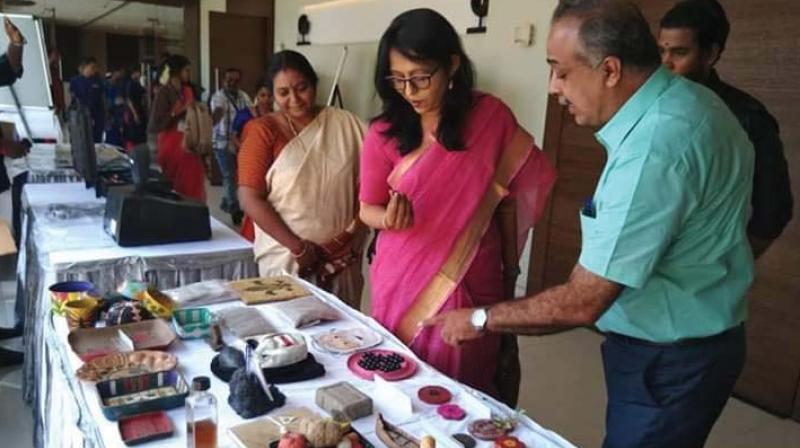Thiruvananthapuram: Art of making money out of a menace

Thiruvananthapuram: Water hyacinth, considered a vegetable pest, is abundant in the water bodies across Kerala and the state government spends crores of rupees every year to clean the mess it creates. However, there is another side of the coin: it is a raw material for an entrepreneur that can fetch him money.
“Water hyacinth is a grave problem but is rich in possibilities,” says Nagendra Prabhu, researcher and assistant professor at SD College, Alappuzha, who hosted the two-day national seminar on 'sustainable lake rejuvenation' which concluded in the capital city on Friday. “They can be used to create many things essential in our daily lives. And there is demand, too.”
The seminar was deliberating on the ways to save the state's water bodies by exploring the possibilities of converting pollutants such as hyacinth into industrial raw material. An exhibition of various art works and commercial products was also held in the backdrop of the seminar.
“See this,” said Prof. Prabhu holding up a briquette made from water hyacinth he picked up from the display bench. “This sells for more than Rs 100 on Amazon.”
“We are currently attempting to decentralise this field,” he said. “We can make products out of water hyacinth only if someone collects it for us. We have asked support from everybody whose business revolves around state's backwaters, especially the houseboat industry and the fisheries sector. If they can get us enough water hyacinths we can give them incentives, in monetary form or in the form of reciprocatory deals. We use water hyacinth they bring us to make various kinds of products as per consumer demand."
Water hyacinths breed very fast and have excellent capability to adapt, survive and dominate, making it an assured raw material that would never run short of supply.
Prof. Prabhu has been campaigning hard for this eco friendly business model for many years now and knows exactly why this prospect has never been exploited. “It’s politics,” he said. “Crores of rupees are spent in ‘cleaning’ our lakes off water hyacinth every year. It generates commissions for many persons.
They would suffer a set back if this business model gathers steam.”
Now, three post-graduate students from Government Engineering College, Barton Hill, have formed a startup company to work on products with the weed. “They have received various funding proposals, including from the state government. Once the paper works are completed, the company will start functioning,” says Prof. Prabhu.

